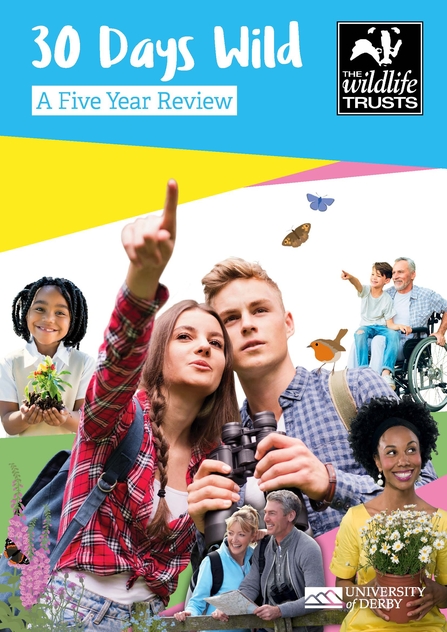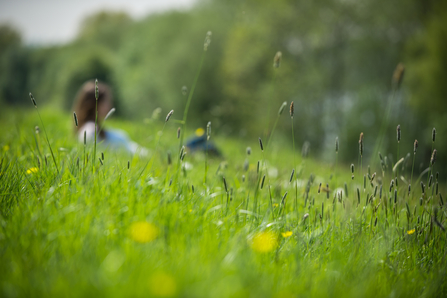The feel-good factor from simple daily contact with nature can last for months, once initiated, according to a new review from The Wildlife Trusts. The review is based on surveys completed by people taking part in 30 Days Wild – the UK’s biggest nature challenge which is run by The Wildlife Trusts and inspires daily acts of nature engagement every day during June.
Building on three peer-reviewed papers, the University of Derby has evaluated survey responses from more than 1,000 people over five years and discovered the enduring effects on wellbeing from participation in 30 Days Wild – the positive effects are still felt two months after the challenge is over.
30 Days Wild participants are provided with ideas, wallcharts and activity sheets that give everyone easy ways of enjoying nature whatever their location. These ‘random acts of wildness’ range from walking barefoot on grass, to sitting beneath a tree or watching birds on a feeder.



